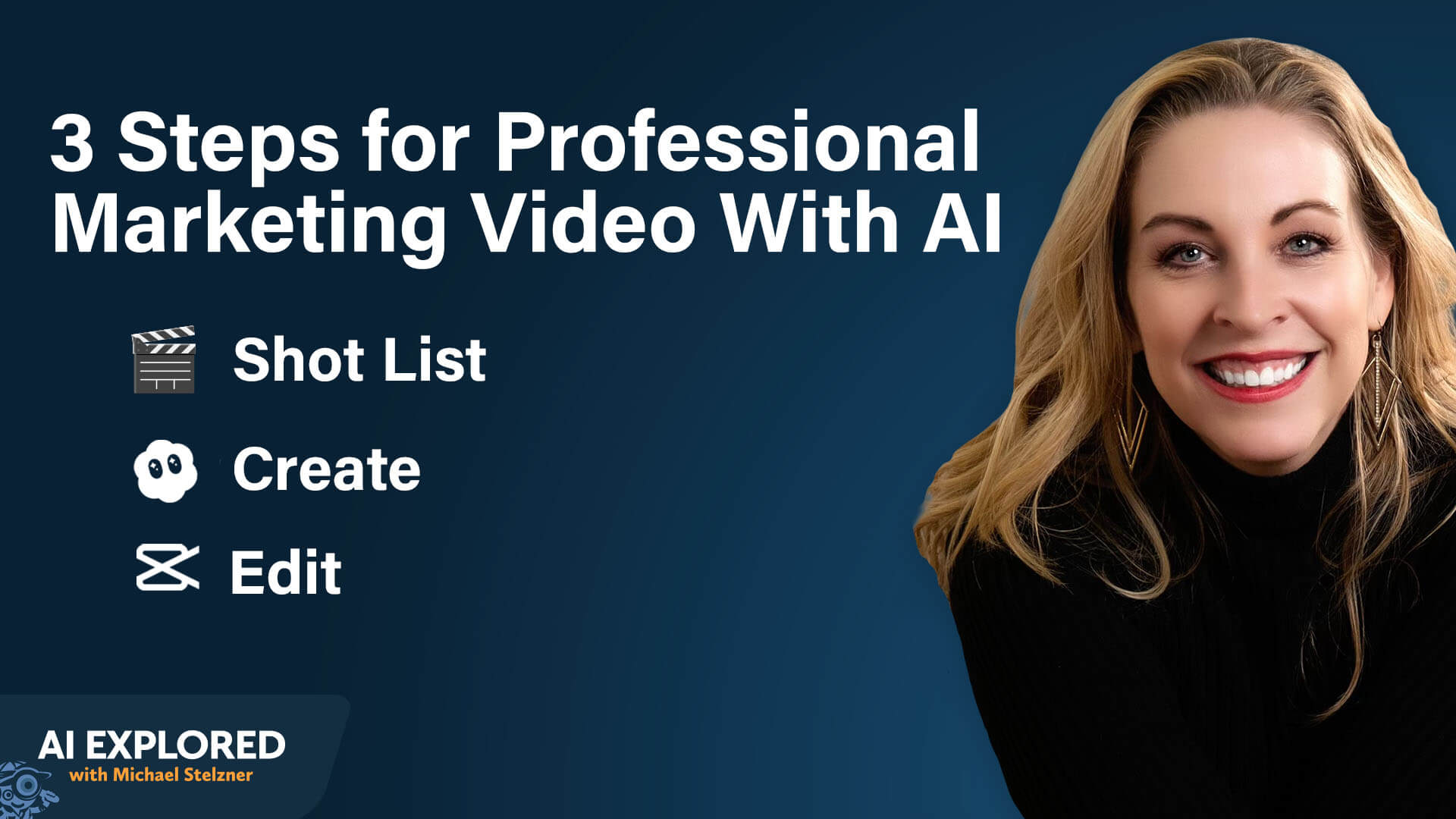Cinema in the Age of AI: What’s Next?
Director David Fincher began his career as a highly acclaimed music video director, helming some of the most iconic music videos of the MTV era for some of the most popular artists of the day, including everyone from Aerosmith...


Director David Fincher began his career as a highly acclaimed music video director, helming some of the most iconic music videos of the MTV era for some of the most popular artists of the day, including everyone from Aerosmith and Stevie Wonder to George Michael and Madonna. In this way, Fincher’s work in the medium serves as a hyper-specific encapsulation of the tone, palette, and influence that such works had during their heyday. Shortly after. Fincher graduated to feature-length filmmaking, where (after an initial road bump in the form of the production woes that beset his version of Alien 3 in 1992) he became one of the most renowned and highly praised directors in the business.
From 1995 to 2014, Fincher helmed a total of nine theatrical features, and those films (including the likes of Se7en, Fight Club, Zodiac, The Curious Case of Benjamin Button, The Social Network, and Gone Girl) have become some of the most influential and innovative works of the past century. In 2013, Fincher became one of the first high-profile filmmakers to team with the then-nascent streaming service Netflix, producing and directing several episodes of House of Cards. In the years since then, Fincher has worked exclusively with the now massive streaming service, having created numerous television and film projects for it.
All of this is to say that David Fincher has routinely been at the forefront of cultural changes regarding filmmaking, the medium, and its impact on the zeitgeist. This is why it feels especially important to note that in 2025, David Fincher has embraced AI in filmmaking, at least to some extent, and this feels indicative of what is to come over the next several years. As AI has advanced in its technical and user-friendly capabilities over the course of the past several years, it has been implemented into an increasingly staggering number of fields. From AI text-generators to AI Girlfriend emotional companions, users around the world are utilizing AI for any number of purposes. And in Hollywood, it has become increasingly clear that AI’s role in the art of filmmaking is only going to spread.
The Use of AI
It’s critical to note the context in which noted and respected filmmaker David Fincher has utilized AI thus far. As opposed to other efforts that have attempted to utilize the technology to create scenes and sequences of film whole cloth using nothing other than AI generative tools, Fincher’s use of AI has been strictly limited to restorative efforts. For a recent restoration and IMAX release of his 1995 film, Se7en, Fincher and his team used AI tools to help restore footage that had been damaged over the years. While the notoriously meticulous filmmaker switched over to filming digitally with his 2007 film Zodiac and has never looked back, Se7en was captured on traditional, tactile film, making its 8K restoration a much more labor-intensive process. Speaking of a specific scene in which the focus was a bit soft for the filmmaker’s exacting tastes, he said, “We were able to use AI and make mattes and extract the performance that was in the backseat and render it. It’s still soft, but it’s not as egregious as it was. My real attitude is I don’t want to change it. I want to make it opening night, 1995, but the pristine version of that.”
Through AI tools, Fincher was able to more succinctly and effectively restore the film reels of Se7en to the quality they would have been back in 1995, utilizing the innovative technology to pursue a more classical and traditional standard. This is unique in terms of AI’s usage in Hollywood, but certainly not alone. For example, filmmaker Peter Jackson (a similarly forward-thinking creator who helped to set so many brand-new industry standards with his effects-driven blockbusters like the Lord of the Rings films) utilized AI technology as a means to a similar end in the creation of his Beatles documentary series, Get Back. Through using AI, Jackson and his team were able to isolate, separate, and restore individual audio recordings of the band circa the late ‘60s that had long been deemed unusable.
Restorative vs. Reductive
However, such restorative efforts are far from the only use of AI in Hollywood filmmaking. While Fincher and Jackson’s approaches have been gentle, utilizing the technology sparingly to accomplish minute technical tasks that would otherwise be entirely unfeasible, others have opted to use AI for more comprehensive and all-encompassing purposes. Notably, numerous users within the tech field have attempted to use AI generators to create their own short films or trailers to illustrate the tech’s generative capabilities. And while the technical aspects of these works may be impressive, the creative shortcomings of the technology can also be blindingly apparent.
If a user trains an AI system on hours-upon-hours of certain movies and then prompts the system to create a short film about a bank robbery for them, the footage rendered by the AI system is going to be entirely rooted in the visuals, aesthetics, and cinematic vernacular of the original work. To this end, it isn’t a new creative work but an entirely derivative one. While a human filmmaker may be inspired by other original works, humans are not capable of exacting and precise recreation to this degree and come with their own inherent preferences, biases, and tastes, which they have accumulated over the course of their lifetime. To this end, a human filmmaker will always bring elements of themselves to the table, whether they mean to or not. In stark contrast, AI does not have preferences of its own, it merely mimics what it has been given.
While the legality surrounding AI’s use in filmmaking is still nebulous at best, the technology continues to evolve and become a much more widely accepted and integral element in filmmaking. David Fincher has spent his entire career at the forefront of technical and creative evolution, and his embracing of AI on any level tells where the industry will head in the coming years. When Fincher first signed on to make works for Netflix, he was an outlier. Now, streaming services are rivaling theatrical in terms of popularity and viability when it comes to exhibiting films. In just a few years, AI may very well be just as large of a game-changer, if not bigger, for the entertainment industry as streaming services have been for the past decade.
What’s Next?
As AI continues to evolve, its role in filmmaking will likely expand, offering new opportunities while also raising critical questions about artistic integrity and creative collaboration. For directors like David Fincher and Peter Jackson, AI has proven to be a powerful tool for restoration, allowing filmmakers to preserve and enhance their work in ways previously thought impossible. However, this careful and measured application of AI is only one facet of its potential impact on the film industry.
The coming years may see AI integrated into every stage of filmmaking, from pre-production to post-production, blurring the lines between human creativity and technology. While restorative efforts like those undertaken by Fincher and Jackson emphasize AI as a means of preserving cinema’s past, other applications may redefine how films are made entirely. The challenge for the industry will be to strike a balance, ensuring that AI enhances the creative process without overshadowing the human artistry that lies at the heart of storytelling.

 Troov
Troov 






























